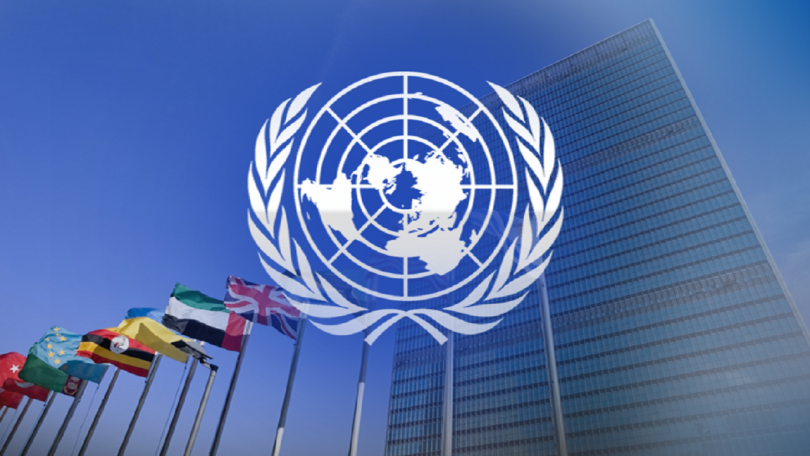Statement by Dmitry Polyanskiy, First Deputy Permanent Representative of Russia to the UN, at the closed VTC of UNSC Member-States on the COVID-19 Pandemic Situation in Venezuela
Mr. President,
I would like to thank Ms. Reena Ghelani of the Office for the Coordination of Humanitarian Affairs for her assessments of the humanitarian situation in Venezuela in the face of the coronavirus pandemic.
Let me also thank our colleagues from Security Council who suddenly demonstrated eagerness to discuss humanitarian situation in Venezuela that suddenly coincided with the very same moment when on the 22nd of April we raised the issue of the attempts by the United States to use the situation with pandemic to increase political and military pressure on the legitimate Government of Venezuela.
I admire your ingenuity. But since the reason for asking for today’s meeting was situation with COVID-19 pandemic, let’s analyze the figures. According to WHO data there have been around 325 confirmed cases of COVID-19 with 10 deaths as of today, putting Venezuela almost to the very end of the “sad list” of Latin American countries. Just for the sake of comparison: neighboring Colombia registered 5 379 cases with 244 deaths.
So what was the point of raising this issue today? Judging from the data, the neighbors of Venezuela deserve such a discussion much more than this country.
These impressive results in Venezuela became possible because immediately after the first cases of COVID-19 the Government declared the State of Emergency, taking all necessary preventive measures to manage the situation.
It is important to stress that Venezuela’s efforts and cooperation with UN specialized Agencies, Funds and Programs, allowed the country, according to WHO and UNDP, to lead in the number of COVID-19 tests per capita in the Latin America and Caribbean region.
It is important not to forget that the efforts of the Venezuelan Government to fight the pandemic are being taken in spite of tightening US sanctions against this country.
The Bolivarian Republic’s financial resources, for the total sum of 9 billion US Dollars, are currently arrested in the US and some European countries. This money could have served to improve country’s welfare system, buy necessary equipment and medicine abroad. EU is no better than the US because it complies with the US measures in fear of facing sanctions itself.
Just to give you one recent example, as of April 2020, the US Citi Bank in New York has frozen almost 350 million US dollars belonging to Venezuela’s Central Bank and started transfer of these assets to the US Federal Reserve system. Considerable assets belonging to Venezuela were also confiscated in the UK, Portugal, Belgium, Germany.
We have repeatedly heard US assurances that its sanctions allegedly have no impact on ordinary people, as medical supplies and food provision are “exempt from sanctioned products lists”. But it has been repeatedly proven that these exemptions do not work, since the foreign banks and companies are keen to avoid indirect sanctions for operations with Venezuelan Government. Therefore these illegal coercive measures make it nearly impossible to buy necessary medical equipment, food, vaccines, spare parts for country’s essential industries. This problem was raised multiple times by the UN Member States in their letters to the UN leadership, as well as by the Secretary-General himself.
What we face now is extraterritorial implementation of national US sanctions through threats and blackmail in blatant breach of international law.
We should not also keep silence about the refusal of an emergency loan to Venezuela from the International Monetary Fund to fight the coronavirus – it has been rejected due to its President's so-called “contested” status. This is outrageous, given the fact that President Maduro remains the one and only legitimate President of Venezuela until and if its citizens make another choice within country’s existing constitutional framework.
To have a full picture of what’s happening in and around Venezuela we need to point out that tens of thousands of Venezuelans currently return to their homeland from other countries of the region, including from the neighboring Colombia, seeking shelter and protection to be provided by the Venezuelan State.
All Venezuelan returnees are welcomed back, quarantined and released with the support of the Pan-American Health Organization and other relevant entities and organizations.
As far as Russia is concerned, we delivered COVID-19-related humanitarian assistance to Caracas on 23 March and 8 April. We know that humanitarian assistance to the country is also provided by our Chinese and Cuban partners as well as by WHO and Pan-American Health Organization. This is the real help and not mere lip service and political slogans multiplied by our Western partners.
But the real help that the US and its allies could provide today would be to refrain from meddling and interference into Venezuela’s internal affairs and to let Venezuelans themselves decide the fate of their country and its political system.
Attempts to impose external solutions accompanied by threats of “all options on the table” are unacceptable. Any military scenarios have been explicitly rejected by Venezuelans themselves, countries of the region and other states. It is unfortunate, that Washington stubbornly deals with the region in the spirit of the so-called “Monroe Doctrine”. Such conduct is in fact one of the major reasons that aggravates problems in Venezuela and in the region as a whole.
Thank you
